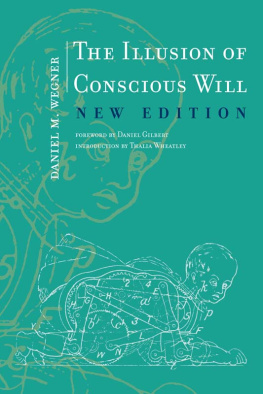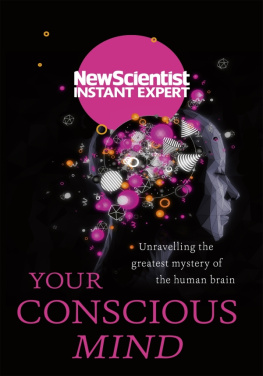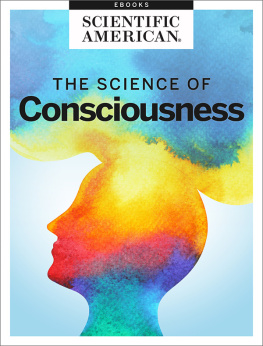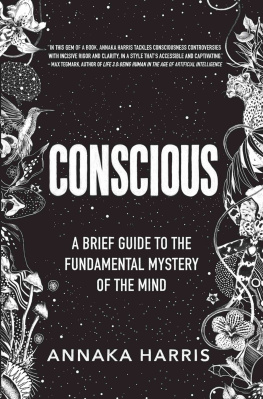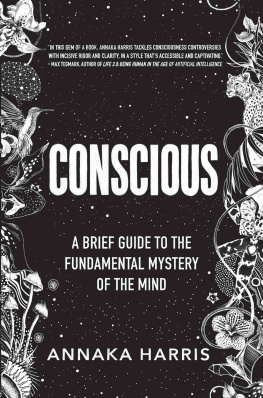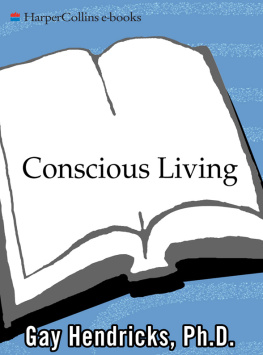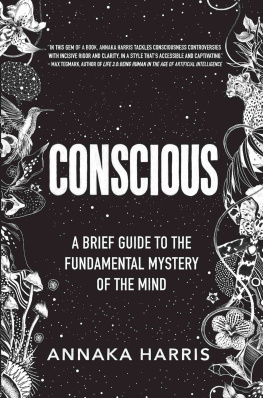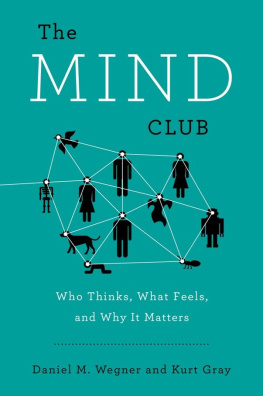Wegner Daniel M. - The Illusion of Conscious Will
Here you can read online Wegner Daniel M. - The Illusion of Conscious Will full text of the book (entire story) in english for free. Download pdf and epub, get meaning, cover and reviews about this ebook. year: 2018, publisher: MIT Press, genre: Religion. Description of the work, (preface) as well as reviews are available. Best literature library LitArk.com created for fans of good reading and offers a wide selection of genres:
Romance novel
Science fiction
Adventure
Detective
Science
History
Home and family
Prose
Art
Politics
Computer
Non-fiction
Religion
Business
Children
Humor
Choose a favorite category and find really read worthwhile books. Enjoy immersion in the world of imagination, feel the emotions of the characters or learn something new for yourself, make an fascinating discovery.
- Book:The Illusion of Conscious Will
- Author:
- Publisher:MIT Press
- Genre:
- Year:2018
- Rating:3 / 5
- Favourites:Add to favourites
- Your mark:
- 60
- 1
- 2
- 3
- 4
- 5
The Illusion of Conscious Will: summary, description and annotation
We offer to read an annotation, description, summary or preface (depends on what the author of the book "The Illusion of Conscious Will" wrote himself). If you haven't found the necessary information about the book — write in the comments, we will try to find it.
The Illusion of Conscious Will — read online for free the complete book (whole text) full work
Below is the text of the book, divided by pages. System saving the place of the last page read, allows you to conveniently read the book "The Illusion of Conscious Will" online for free, without having to search again every time where you left off. Put a bookmark, and you can go to the page where you finished reading at any time.
Font size:
Interval:
Bookmark:

New Edition
Daniel M. Wegner
The MIT Press
Cambridge, Massachusetts
London, England
2018 Massachusetts Institute of Technology
All rights reserved. No part of this book may be reproduced in any form by any electronic or mechanical means (including photocopying, recording, or information storage and retrieval) without permission in writing from the publisher.
This book was set in Stone Sans and Stone Serif by Toppan Best-set Premedia Limited. Printed and bound in the United States of America.
Library of Congress Cataloging-in-Publication Data
Names: Wegner, Daniel M., 1948- author.
Title: The illusion of conscious will / Daniel M. Wegner ; foreword by Daniel Gilbert ; introduction by Thalia Wheatley.
Description: New edition | Cambridge, MA : MIT Press, [2017] | Revised edition of the authors | Includes bibliographical references and index.
Identifiers: LCCN 2017021970 | ISBN 9780262534925 (pbk. : alk. paper)
eISBN 9780262344869
Subjects: LCSH: Will. | Free will and determinism.
Classification: LCC BF611 .W38 2017 | DDC 153.8--dc23 LC record available at https://lccn.loc.gov/2017021970
ePub Version 1.0
A leaf was riven from a tree,
I mean to fall to earth, said he.
The west wind, rising, made him veer.
Eastward, said he, I now shall steer.
The east wind rose with greater force.
Said he: Twere wise to change my course.
With equal power they contend.
He said: My judgment I suspend.
Down died the winds; the leaf, elate,
Cried: Ive decided to fall straight.
Ambrose Bierce, The Devils Dictionary (1911)
Daniel Gilbert
Dan Wegner was many thingsa scientist, a scholar, a teacher, a mentor, and for thirty years, my very closest friend. But first and foremost, Dan was an inventor. Although he would ultimately become a widely celebrated minence grise who received every major award the scientific community could offer him, he never stopped being that ten-year-old boy who sat in the attic of his parents home in East Lansing, Michigan, with an issue of Popular Mechanics and a chemistry set, trying to develop a formula that would turn the family cat into a family dog, because, as Dan would maintain for the rest of his life, there is simply no good reason for cats.
Dan was an inventor, so when he went to Michigan State University in 1966, it was to study physics and engineering. But toward the end of his undergraduate career he realized that the thing he liked even better than building machines that sparkled, whirred, and flew was building ideas that did the same things. And so he made an intellectual left turn and entered the field of social psychology, where he spent the rest of his life making problems for everyone.
Thats right. Most scientists encounter problems and then work hard to solve them, but Dan didnt see it that way. He thought that problems were the things that needed inventing, and that once they were invented, solving them was the easy part. The problems he invented are now on permanent display in the museum we call the scientific literatureproblems with names like transactive memory, action identification, ironic processes, thought suppression, and (as described in this volume) apparent mental causation. Each of these rubrics represents an area of psychological research that Dan single-handedly invented ex nihilo and in which other scientists continue to work to this day. His theories were elegant, his experiments were ingenious, his writing was revelatory, and psychologists properly regard him as one of the centurys most creative and insightful explorers of the human mind.
Of course, some of Dans most wonderful inventions reside not in the pages of scientific journals, but in the memories of those who happened to be standing nearby when he created them. Those were the ideas and insights he generated in the course of daily conversation, in which he would riff and roll and improvise on just about any topic with such effortless originality that it would make your jaw drop, your head spin, and several other anatomically improbable metaphors. A conversation with Dan was like a rollercoaster ride: It started out slow and a bit uphill because Dan was rather shy, but then, just when you began to wonder why youd bothered to fasten your seatbelt, he would say this thing and suddenly you were in free fall, spinning in a direction so strange and new that it bent the needle on your compass.
The things Dan said were smart, but not just smart. They were also hilarious. He never told stories or jokes but rather he remarked. Those remarks were like great licks in jazzordinary phrases spontaneously rearranged in ways so unexpected that they produced a visceral thrill. For Dan, remarking was high art. He once told me that a good remark often contains the second most remote associate, which is the word that is precisely two words away from the word the listener was expecting. He noted that on a surprising number of occasions, that word is shrubbery. Dan thought about things like thisand he thought about them a lot, which is why he so often tipped me over using nothing but his mind.
In life, Dan attained professional heights that few of us will achieve. And in death, he set a personal example that few of us will follow. In 2010, Dan was diagnosed with amyotrophic lateral sclerosis (ALS), and over the next two-and-a-half years he gradually lost his ability to stand, then to sit, then to move, then to speak, and then finally, to breathe. But until his last weeks, Dan remained fully engaged in his lifes work. He continued to mentor his students, helping them become the best versions of themselves rather than pale copies of him. He continued to work on a new book (The Mind Club, with his student and coauthor Kurt Gray), and to publish new scientific papers. He was delighted by the steady stream of visitors to his home, referring to his waning days as the worlds longest wrap party, and he accepted each new physical challenge and inevitable defeat with unusual grace and good humor. In 2011, Harvard University held a final conference in his honor, which his friends affectionately dubbed Wegstock, and Dan made the closing remarks. He expressed gratitude for the deeply satisfying life Ive found using science to explore the nature of human connectedness, and then bid farewell to colleagues, students, friends, and admirers whom he knew he would not see again: Id rather be here right now with you people, the people in this room, than with some of the finest people in the world. For Dan, dying was no excuse for being serious.
Dan is gone and I miss him. You hold in your hand what I believe was his magnum opus. In it you will find ideas that sparkle, whir, and fly. They will be grounded in facts that only Dan could have discovered and adorned with remarks that only Dan could have made. As you read, you will be amazed, perplexed, aghast, and delightedand when you are finished, you will never see the world in the same way again. Lucky, lucky you.
Thalia Wheatley
If you picked up this book, you probably have an opinion on whether conscious will isas Dan Wegner put itan illusion. Perhaps you find the claim absurd. After all, didnt it feel like you consciously decided to read this page? The whodunit of action seems obviousso obvious, in fact, that the possibility of it being illusory tickled one of the greatest minds in science. Here, Dan Wegner delights in unmasking what he called the most compelling illusionthe feeling that we consciously will what we do.
Next pageFont size:
Interval:
Bookmark:
Similar books «The Illusion of Conscious Will»
Look at similar books to The Illusion of Conscious Will. We have selected literature similar in name and meaning in the hope of providing readers with more options to find new, interesting, not yet read works.
Discussion, reviews of the book The Illusion of Conscious Will and just readers' own opinions. Leave your comments, write what you think about the work, its meaning or the main characters. Specify what exactly you liked and what you didn't like, and why you think so.

